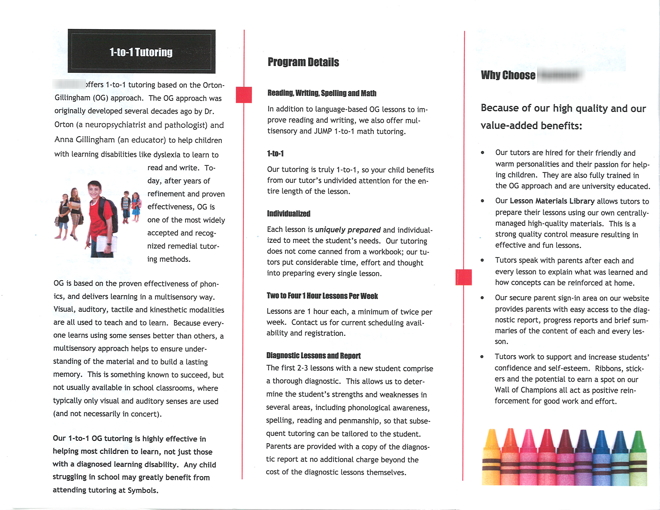During the course I taught through UBC’s Continuing Studies, the topic that engaged the participants most (perhaps because I was deliberately provocative) was special needs education. When asked about the availability of special needs education in Japan, I replied that “There are no special needs.” Obviously, that is quite untrue on many levels.
However, as far as perceptions by most stakeholders are concerned, that provocative over-simplification seems to describe the state of affairs reasonably well.
Before I get myself into really hot water in an area that I have only looked at through the words/eyes of my interview informants, let me stick to the juku perspective on special needs.
I’ve only seen one child with an obvious physical disability in my 45+ juku visits. Obviously, I may not have spotted disabilities that are less visible.
I would, however, include school refusal in the category of potentially requiring special needs attention. 不登校 (school refusal) has emerged as a major concern in Japan over the past several years. As far as I can tell, this term encompasses a whole range of behaviours that fall along a continuum stretching from mild (“I don’t like my teacher, so I don’t want to go to school”) to more severe (mental health issues, including agoraphobia, etc.).
I have encountered school refusers in virtually all the juku that I’ve visited. Somewhat embarrassingly to me as a researcher, the jukucho will often point these students out to me quite explicitly. Beyond their presence in all juku, I have also visited two juku that specialize in the more severe cases of school refusal.
Initially, I was astonished to learn that there are school refusers who are attending juku instead of conventional school. If you come to this situation with notions of exam hell structuring the school experience of secondary school students, and of juku focusing on cramming for entrance examination, then one might not expect students to “flee” to juku away from the senate.
At the milder end of the school refusal spectrum, some students may simply not be getting along with fellow students or teachers. For this category, juku attendance would seem to make sense, as switching schools is very unusual in Japan, so that juku presents itself as a ready alternative. As authorities are clearly tolerating juku attendance (or even complete school refusal by staying at home) as an alternative to compulsory education, juku may really be the obvious solution. That would also explain the fact that a significant number of school refusers at the lower secondary level, re-enter school for senior secondary schooling. Clearly, these have to be relatively mild cases of school refusal.
Towards the other end of that spectrum, I visited two juku that specialize in special needs students. One of them was even more unusual in that it is run on a volunteer-basis, i.e. not-for-profit. This is in part possible because the jukucho owned a large apartment building that a) provided him with an income, and b) made some basement space available for the use of the juku. This was probably also the juku that had the coolest (or any) toys available for students in the form of constructor-set-like things.
The other juku is also in metropolitan Tokyo and caters more specifically to students who are challenged by social interactions. I had obviously read about otaku and even about hikikomori (shut-ins), but this experience at this particular juku definitely gave me a new perspective on these phenomena.
There were only five students (all middle school) in this classroom, but it was very clear right away that these students were different from the students I usually saw in Tokyo juku. There was something very physical about their social interaction disability, the way they held themselves and held their body when interacting with others. Then, during class, some of them would simply seem to clam up, turn inward and tune out, even when simple questions were addressed to them. Coupled with the dinginess of the juku surroundings, this visit was pretty eye-opening.
Interestingly, even these students (who looked to this layman like they fell in the mental health portion of the spectrum of behaviours), were planning to re-enter high schools through entrance examinations to complete their education.
It also turned out to be a mouth-watering visit, however, in that the jukucho had returned from a trip to Denmark (if I recall correctly) some years earlier where he had visited a program that offered vocational training to at-risk youths. He had been impressed and subsequently opened a Ramen shop that is staffed by his students. The noodles were actually quite good.
To return to the question of the absence of special needs education, the current post-triple-disaster fiscal situation probably makes a large-scale public investment unlikely, especially since this would most likely come in local budgets, rather than national MEXT contributions.
Given that fiscal constraint, but a growing awareness of the desirability of special needs services (social interactions, Japanese-as-second-language-learners, otaku/hikikomori, etc.) among parents, perhaps the juku industry will respond to this more flexibly than conventional schools are able to (especially in the current context).
If the fairly unusual juku that I mention above are ahead of the curve on this topic, then we might expect not only a growing awareness of special needs, but also a growing servicing of these needs as juku turn themselves more and more into more comprehensive education providers and consultants.


